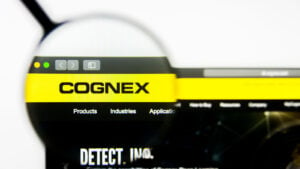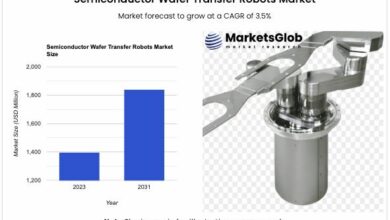The 3 Most Undervalued Robotics Stocks to Buy in June 2024

In this article, we will explore the three most undervalued robotics stocks that savvy investors should consider adding to their portfolios in June 2024. These companies have demonstrated strong fundamentals and fascinating technologies that are pushing the needle forward.
As with any investment, thorough research and due diligence are essential. However, by carefully examining these undervalued robotics stocks, you may uncover the potential for significant returns as the market recognizes their true worth.
The robotics market in the United States demonstrated strong performance in 2022, with a valuation of USD 7.15 billion. Industry analysts predict that this growth trajectory will continue, with the market expected to expand from USD 7.47 billion in 2023 to an impressive USD 10.71 billion by 2032. This projection represents a compound annual growth rate (CAGR) of 4.60% over the forecast period spanning from 2024 to 2032.
There’s then a great opportunity for investors to capitalize on the growth of this market through this list of the best robotics stocks to buy.
Intuitive Surgical (ISRG)

Source: Sundry Photography / Shutterstock.com
Intuitive Surgical (NASDAQ:ISRG) is a leader in the robotic-assisted surgical solutions industry. Its flagship product, the da Vinci Surgical System, has facilitated over 13 million surgical procedures.
For 2024, Intuitive Surgical plans to continue expanding its installed base of da Vinci systems, which grew by 14% to 8,887 systems in Q1 2024. The company aims to increase procedure volumes and enhance its product offerings, focusing on innovations in minimally invasive surgery. They expect steady revenue growth.
The reason I think ISRG is undervalued is because Intuitive Surgical recently received FDA clearance for revised labeling on its da Vinci Xi and X systems for radical prostatectomy, further expanding its clinical applications. This then gives it a substantial upside potential for further growth.
Furthermore, analysts generally rate ISRG stock as “Buy,” with a consensus price target suggesting a potential upside in the short-term, but I believe it will be worth much more in the future.
UiPath (PATH)

Source: dennizn / Shutterstock.com
UiPath (NYSE:PATH) specializes in robotic process automation (RPA) software, automating repetitive front and back office tasks. Their software-as-a-service (SaaS) model allows businesses to improve efficiency and reduce operational costs
In Q1 2024, UiPath reported revenue of $289.6 million, an 18% increase year-over-year. The company achieved annual recurring revenue (ARR) of $1.249 billion, a 28% increase compared to the previous year. Net new ARR was $45 million. The GAAP gross margin stood at 85%, while the non-GAAP gross margin was 87%.
For the second quarter of fiscal 2024, UiPath expects revenue between $279 million and $284 million and ARR between $1.301 billion and $1.306 billion. The company projects non-GAAP operating income of approximately $10 million. For the full year fiscal 2024, UiPath anticipates revenue between $1.267 billion and $1.272 billion.
Thus, at just $11.87 per share, PATH could be considered undervalued based on its revenue and earnings growth rates.
Cognex (CGNX)

Source: Pavel Kapysh / Shutterstock
Cognex (NASDAQ:CGNX) develops machine vision systems used in manufacturing automation, ensuring high precision and quality. These systems help ensure high precision and quality control, making them essential in various industries such as automotive, electronics, and logistics.
In Q1 2024, Cognex reported revenue of $210.8 million, a 5% increase year-over-year, exceeding the analyst estimate of $200.42 million. Net income for the quarter was $12.0 million, down from $25.6 million in Q1 2023, translating to earnings per share (EPS) of $0.11, which beat the analyst expectation of $0.08.
In recent months, Cognex has focused on integrating AI and advanced analytics into their machine vision systems to enhance functionality and efficiency. Additionally, Cognex has maintained a strong financial position with substantial cash reserves and no debt.
While looking ahead, the company expects continued demand in sectors such as logistics and semiconductor manufacturing, which showed growth in Q1 2024.
On the date of publication, Matthew Farley did not have (either directly or indirectly) any positions in the securities mentioned in this article. The opinions expressed are those of the writer, subject to the InvestorPlace.com Publishing Guidelines.



